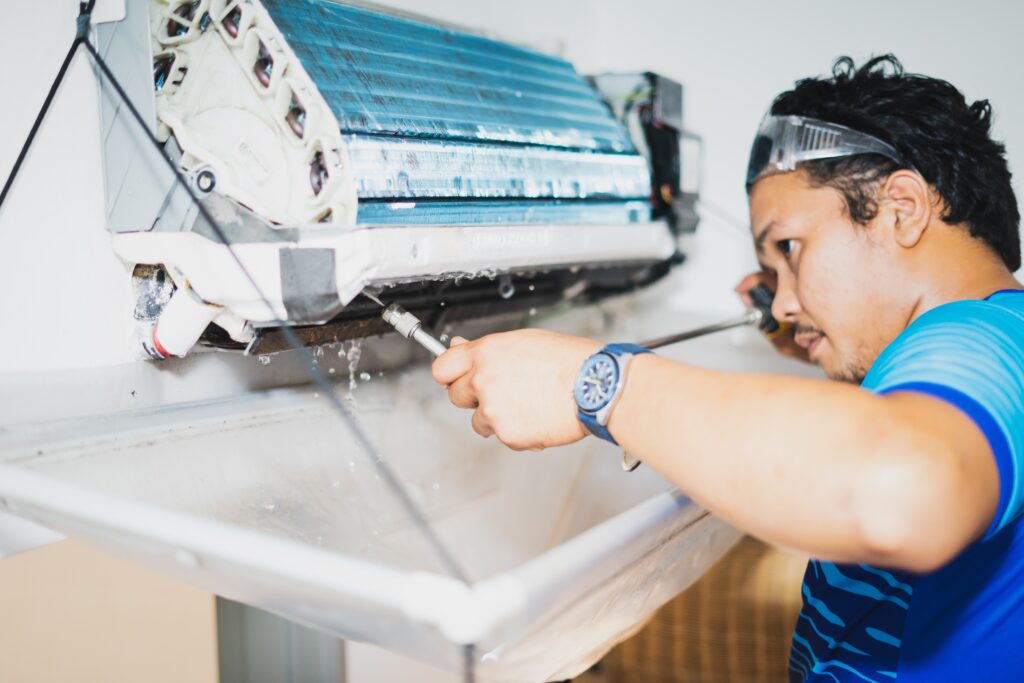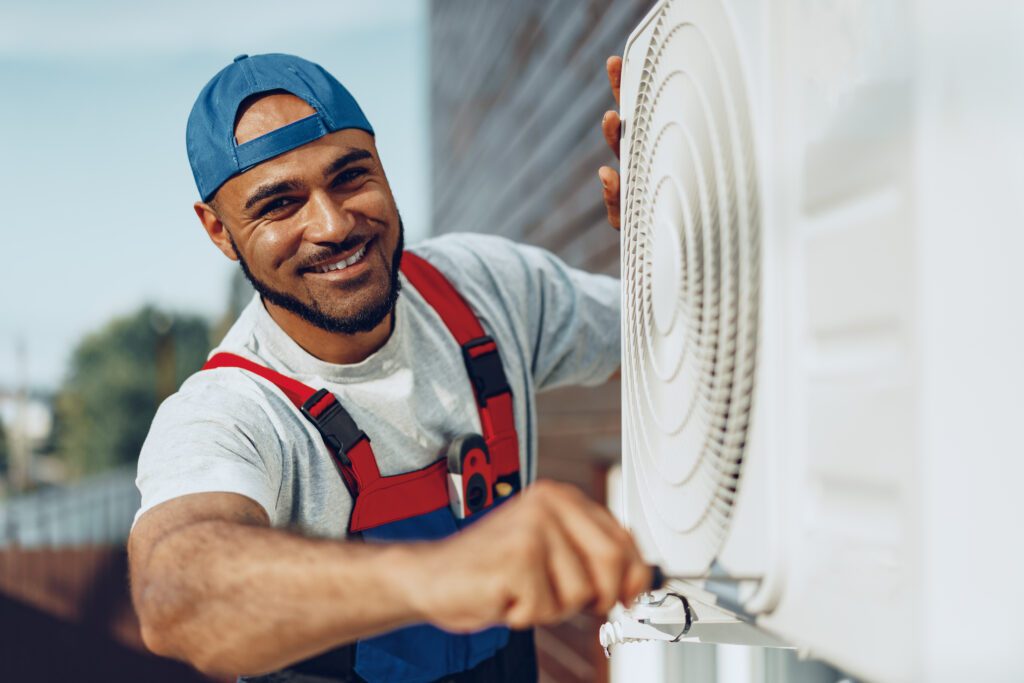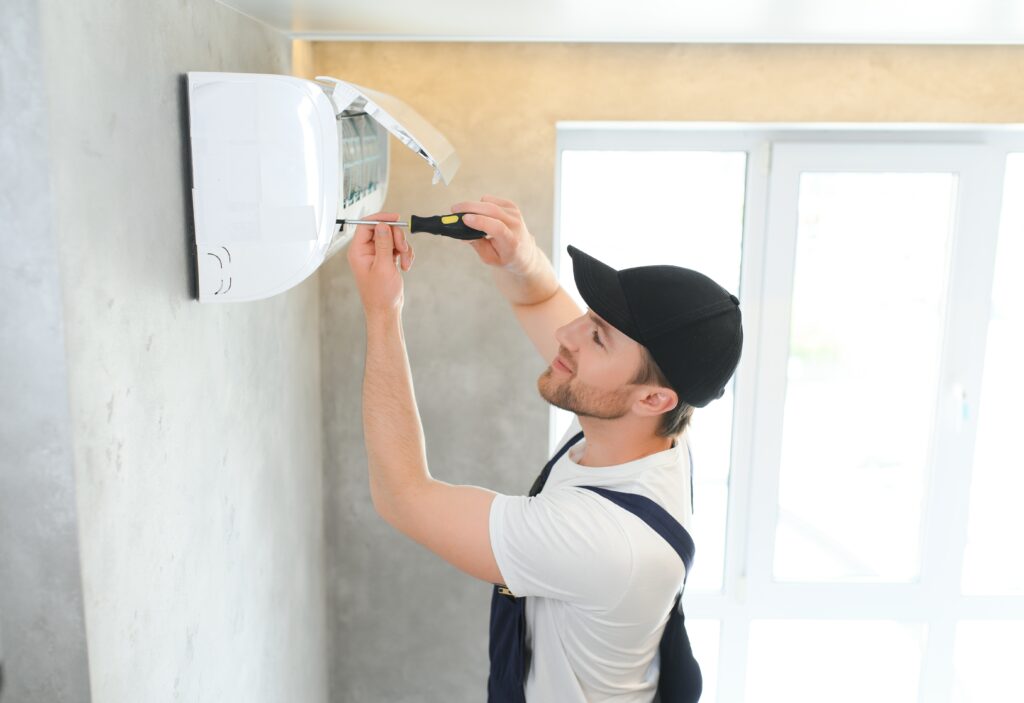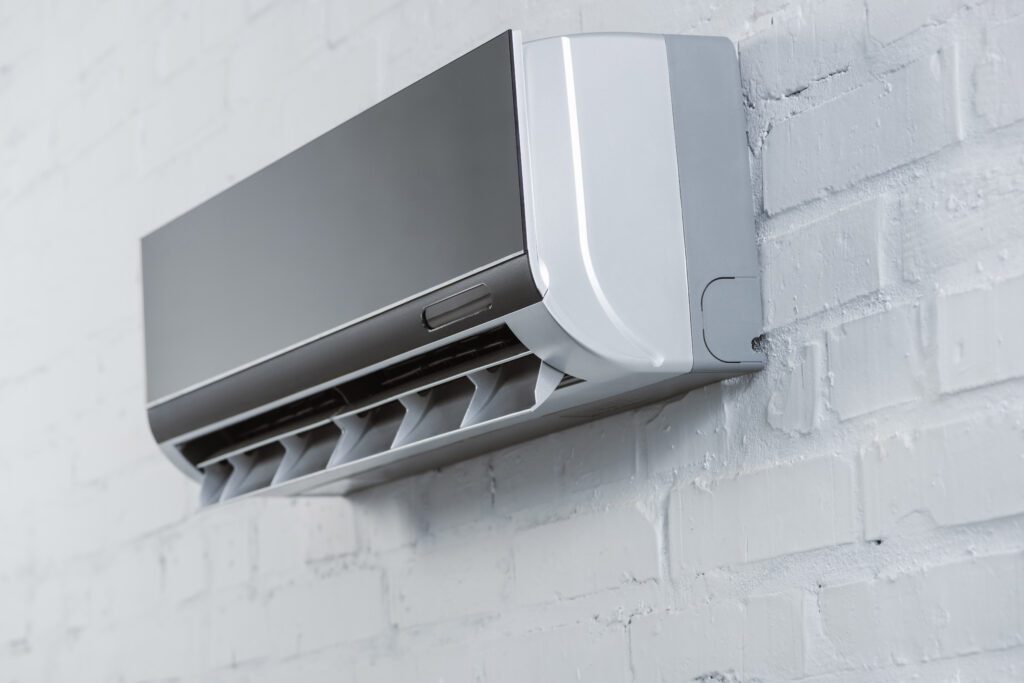If you have an air conditioning unit, you know how important it is for maintaining a comfortable indoor environment, especially during the hot summer months. However, like any other appliance, your air conditioner may experience issues that require repair. In this article, we will discuss five essential air conditioning repair tips to help you troubleshoot and fix common problems that may arise.
Understanding the Basics of Air Conditioning Repair
Before we delve into the repair tips, it’s crucial to have a basic understanding of how air conditioners work. Many air conditioning units operate on the same principles, consisting of components such as the compressor, condenser, evaporator, and refrigerant. When these components work together efficiently, they cool and dehumidify the air, providing a comfortable indoor climate.
Moreover, air conditioners use a closed-loop system to transfer heat from inside a building to the outside environment. The compressor plays a vital role in this process by pressurizing the refrigerant gas, which then flows through the condenser coils to release heat and cool down. The cooled refrigerant moves to the evaporator coils inside the building, where it absorbs heat and moisture from the indoor air, resulting in cooler and less humid air circulating back into the space.
The Importance of Regular Maintenance
Regular maintenance plays a crucial role in extending the lifespan of your air conditioner and preventing significant issues. It is recommended to have your unit serviced by a professional at least once a year. During this maintenance check, the technician will inspect and clean the components, check the refrigerant levels, and ensure that everything is in proper working condition. Regular maintenance can help identify potential problems early on, saving you from costly repairs.
In addition to professional maintenance, there are tasks that homeowners can perform to keep their air conditioners running smoothly. Regularly changing or cleaning the air filters is essential to maintain good indoor air quality and prevent the system from overworking. Clearing debris and vegetation around the outdoor unit can also improve airflow and efficiency. By taking these simple steps, you can contribute to the overall health and longevity of your air conditioning system.
Identifying Common Air Conditioning Problems
Understanding the common problems that air conditioners encounter can help you troubleshoot and fix minor issues before they escalate. Some common problems include refrigerant leaks, clogged filters, faulty thermostats, and electrical issues. If you notice your air conditioner is not cooling effectively, not turning on, or making unusual noises, it may indicate an underlying problem that requires attention.
Furthermore, proper installation is crucial to the optimal performance of an air conditioning system. Incorrect sizing, placement, or ductwork can lead to inefficiencies and comfort issues. It is essential to consult with a professional HVAC technician to ensure that your air conditioner is installed correctly and meets the specific requirements of your space. By addressing installation concerns and promptly addressing any maintenance issues, you can enjoy a cool and comfortable indoor environment throughout the year.
Essential Tools for Air Conditioning Repair

Having the right tools is crucial for a successful air conditioning repair job. Here are some essential tools you should have:
Safety Equipment You’ll Need
- Safety goggles
- Gloves
- Electrical tester
When working on air conditioning units, safety should always be the top priority. Safety goggles protect your eyes from debris and harmful chemicals, while gloves shield your hands from sharp edges and hot components. An electrical tester is essential for checking live wires and ensuring that the power is off before starting any repair work.
Basic Tools for Minor Repairs
- Adjustable wrench
- Screwdrivers (Phillips and flathead)
- Pliers
- Multimeter
For minor air conditioning repairs, having a set of basic tools can make all the difference. An adjustable wrench is handy for tightening or loosening nuts and bolts, while screwdrivers in both Phillips and flathead varieties are essential for removing panels and accessing internal components. Pliers can be used for gripping and bending wires, and a multimeter is crucial for testing electrical circuits and diagnosing issues.
Step-by-Step Guide to Air Conditioning Repair

While some repairs should be left to professionals, there are minor issues that you can fix yourself. Here’s a step-by-step guide to help you:
Diagnosing the Problem
The first step in repairing your air conditioner is identifying the root cause of the problem. Begin by checking the thermostat settings, ensuring it is set to the appropriate temperature. If the air conditioner is not turning on, check the circuit breaker and ensure it hasn’t tripped. If these basic checks don’t solve the issue, it’s time to inspect the components for any visible problems or damage.
When examining the components, pay close attention to the condenser unit outside your home. Make sure it is free from any debris such as leaves, dirt, or branches that could obstruct airflow. Additionally, check the evaporator coil inside your home to see if it needs cleaning. A dirty coil can reduce the efficiency of your air conditioner and lead to cooling problems.
Repairing or Replacing Parts
Once you have identified the problem, you can proceed to fix or replace the necessary components. This may involve cleaning or replacing dirty filters, unclogging drain lines, tightening loose connections, or replacing faulty capacitors. Follow the manufacturer’s instructions or consult a professional if you are unsure about the repair process.
If you notice that the refrigerant levels are low, it’s crucial to contact a professional HVAC technician to handle the situation. Refrigerant is a hazardous substance that requires specialized equipment and training to handle safely. Attempting to recharge the refrigerant yourself can lead to serious health and environmental risks.
When to Call a Professional

While some minor repairs can be done by yourself, there are times when it’s best to leave the job to a professional. Here are a few situations where you should call an HVAC technician:
Recognizing Complex AC Issues
If you encounter complex issues such as refrigerant leaks, compressor problems, or motor failures, it’s best to call a professional. These repairs often require specialized knowledge, tools, and expertise to ensure the job is done safely and correctly.
The Benefits of Professional Repair Services
Professional repair services offer numerous benefits such as reliable repairs, warranty coverage, and expert advice. Hiring a professional not only saves you time and effort but also helps prevent further damage to your air conditioner.
Additionally, professional HVAC technicians have access to the latest technology and equipment to diagnose and repair complex issues efficiently. They undergo rigorous training to stay updated on industry standards and best practices, ensuring that your air conditioner is in good hands.
Ensuring Long-Term Performance
By investing in professional repair services, you are not only addressing the immediate issue but also ensuring the long-term performance of your HVAC system. Professionals can identify underlying problems that may not be apparent to untrained eyes, preventing future breakdowns and costly repairs.
Maintaining Your Air Conditioner Post-Repair

Once you have repaired your air conditioner, it’s essential to maintain it properly to ensure its longevity and efficiency. Here are some post-repair maintenance tips:
Regular Cleaning and Maintenance Tips
Regularly clean or replace the filters to ensure proper airflow and optimal cooling. Keep the outdoor condenser unit clear of debris such as leaves and grass. Additionally, schedule annual maintenance checks to detect any issues before they become major problems.
Ensuring Longevity of Your AC Unit
Avoid overworking your air conditioner by setting the temperature at a comfortable level, and use ceiling fans to help circulate the cool air. Also, make sure your home is properly insulated to reduce the workload on your air conditioner. Regularly check for any signs of wear and tear and address them promptly to prolong the life of your unit.
By following these essential air conditioning repair tips, you can troubleshoot common problems and ensure the efficient operation of your air conditioner. Remember to prioritize safety, consult professionals when needed, and maintain your unit regularly for optimal performance. With proper care and maintenance, your air conditioner will continue to provide cool comfort for years to come.
Furthermore, it’s important to pay attention to the thermostat settings of your air conditioner. Setting the thermostat too low can lead to increased energy consumption and unnecessary strain on the unit. Consider investing in a programmable thermostat that can adjust the temperature based on your schedule, saving energy when you’re not at home.
Optimizing Airflow and Efficiency
Another key aspect of maintaining your air conditioner post-repair is to ensure proper airflow throughout your home. Check for obstructions around vents and registers to allow air to circulate freely. Consider using curtains or blinds to block out direct sunlight, reducing the heat load on your air conditioner and improving its efficiency.



